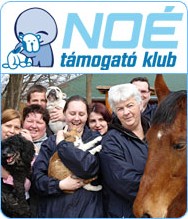There are no more articles in this theme in your language.
Living Together with a Disabled Kitty
2011.01.16.
Living together with a disabled cat requires special attention. We shouldn’t treat such a kitty different from how their healthy fellows are treated. Some might not understand what I mean. How could we treat them to be ordinary as it is obvious that they require much more attention?
We are wrong if we think so. Just ask a handicap man whether they need to be treated specially? The answer will be “no” – furthermore, they desire nothing more than to be considered to be normal, just like healthy people. We rarely see the disabled men to park their cars at a parking place assigned for them: they rather choose a parking place which is much further since they don’t feel to be different from the others and they would like to live their lives like the normal people do. This is the same for the animals, too. Moreover, as they are rather driven by their instincts than by their emotions, disabled kitties don’t believe that anything shall be changed. Their life instinct is so strong that they never fall into self-pity (which people often do). When they become disabled, they return to their normal daily routine as soon as possible, and without any problem.
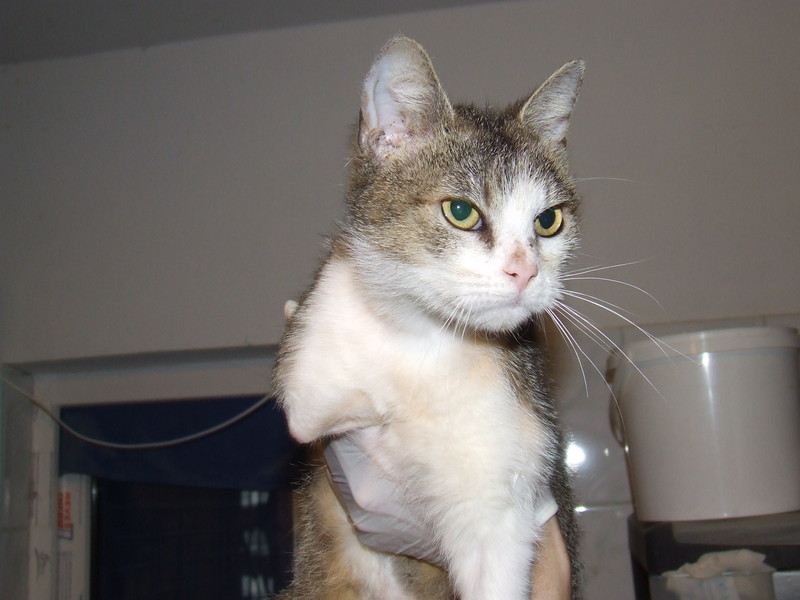
The cats’ sensory organs are basically more developed than that of other species, thus they are able to get used to having partially or totally lost their eyesight more easily, since they can map and adapt to their territory with the help of their whiskers, eyebrows and several sensory hairs. It is a misbelief that cats can see in the darkness but only very little light is enough for them to be able to see and their special sensory hairs allow them to orientate themselves in total darkness. Owners of blind kitties say that an outsider or even the family members wouldn’t even notice their handicap: the kitty can use the litter box, the water and food bowls so skilled and they find the owner’s lap so expertly that no healthy cat could do it better. I wouldn’t advise to change the location of the litter box and the bowls too often – cats don’t prefer that anyway.
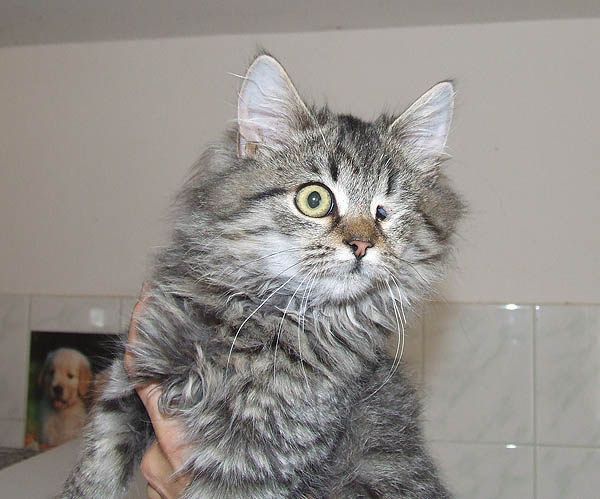
Having lost a limb is a more visible handicap but cats can get used to the altered situation more easily and sooner than we, the owners. Why not? Having three legs means only a very small deficit to having four. Finding balance, jumping up anywhere, running up and down the curtains, and moving about like a ball lightning are just as easy for them as for any other wicked kitty. It is a little bit more difficult to jump off when one of the black limb is amputated, and of course, it is more problematic to land when one of the fore limbs is missing, but for the sake of achieving the appropriate aim (e.g. a titbit) our disabled cat will easily solve it with the flexibility characteristic for the species.
Deafness might be characteristic, even if only occasionally. Most cat owner could have already experienced that. However, only few people know that cats use caterwauling only for communicating with men – they make themselves understood by other cats simply by using body language. Thus one might easily see that hearing is definitely not among the essential senses. Most pet owner soon realize how sensitive their cat is to human emotional fluctuation, as animal’s seventh sense is much more developed than that of common people.
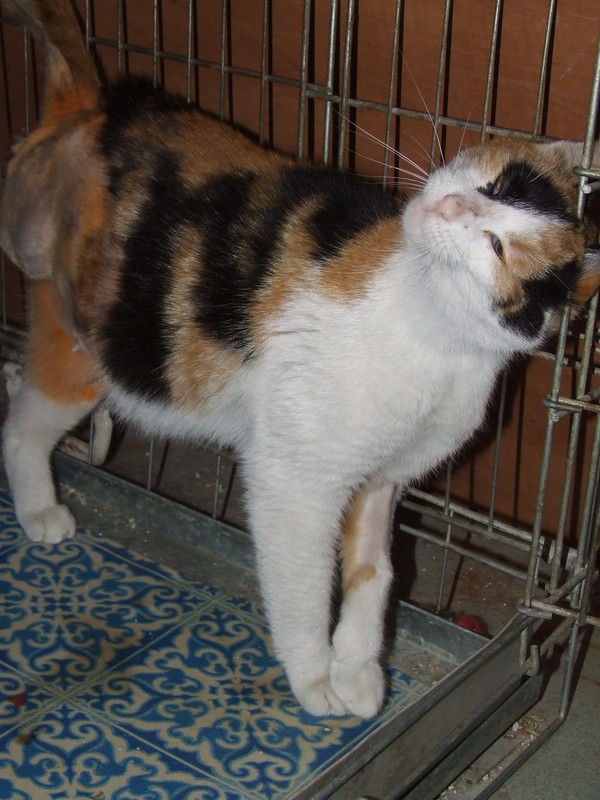
When we are sad or sick, our cat cuddles to us. When we are happy, they reflect it with extraordinary good mood. When we are furious, they become furious, too, and when they realize that we are not seriously angry, they continue their wicked game. Cats react not to our words but to our real emotions which can be positive and self-confident, or negative and uncertain… but certainly not piteous! Why would we transmit such a feeling to them? Our disabled cat needs no more than our love, care and attention. Just like our healthy kitty would require.
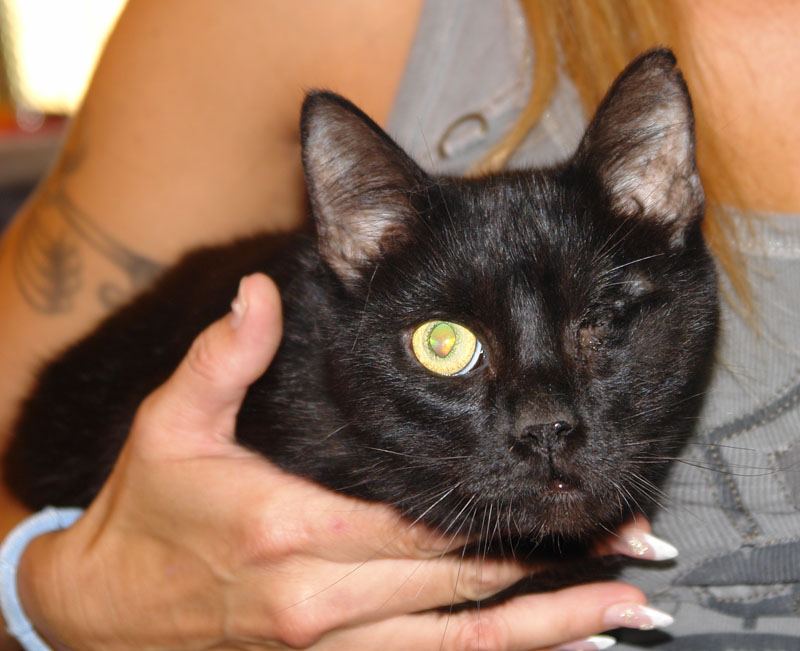
However, as far as the physical surroundings are concerned, they will need 100% safety as their handicap will obstruct them in fighting their enemies. We shall keep a disabled kitty indoors – and preferably a healthy one, too – since there are thousand things meaning danger to our silky-soled pet outside our homes: dogs, cars, viral infections spread by other cats (infections which are incurable and from which even vaccination can’t protect our cat). You can read about how easy it is to provide a complete life for our pet inside the apartment in our article 'Cat in the house'.
Testi Hibás Állatok Facebook Oldala
We are wrong if we think so. Just ask a handicap man whether they need to be treated specially? The answer will be “no” – furthermore, they desire nothing more than to be considered to be normal, just like healthy people. We rarely see the disabled men to park their cars at a parking place assigned for them: they rather choose a parking place which is much further since they don’t feel to be different from the others and they would like to live their lives like the normal people do. This is the same for the animals, too. Moreover, as they are rather driven by their instincts than by their emotions, disabled kitties don’t believe that anything shall be changed. Their life instinct is so strong that they never fall into self-pity (which people often do). When they become disabled, they return to their normal daily routine as soon as possible, and without any problem.
The cats’ sensory organs are basically more developed than that of other species, thus they are able to get used to having partially or totally lost their eyesight more easily, since they can map and adapt to their territory with the help of their whiskers, eyebrows and several sensory hairs. It is a misbelief that cats can see in the darkness but only very little light is enough for them to be able to see and their special sensory hairs allow them to orientate themselves in total darkness. Owners of blind kitties say that an outsider or even the family members wouldn’t even notice their handicap: the kitty can use the litter box, the water and food bowls so skilled and they find the owner’s lap so expertly that no healthy cat could do it better. I wouldn’t advise to change the location of the litter box and the bowls too often – cats don’t prefer that anyway.

Having lost a limb is a more visible handicap but cats can get used to the altered situation more easily and sooner than we, the owners. Why not? Having three legs means only a very small deficit to having four. Finding balance, jumping up anywhere, running up and down the curtains, and moving about like a ball lightning are just as easy for them as for any other wicked kitty. It is a little bit more difficult to jump off when one of the black limb is amputated, and of course, it is more problematic to land when one of the fore limbs is missing, but for the sake of achieving the appropriate aim (e.g. a titbit) our disabled cat will easily solve it with the flexibility characteristic for the species.
Deafness might be characteristic, even if only occasionally. Most cat owner could have already experienced that. However, only few people know that cats use caterwauling only for communicating with men – they make themselves understood by other cats simply by using body language. Thus one might easily see that hearing is definitely not among the essential senses. Most pet owner soon realize how sensitive their cat is to human emotional fluctuation, as animal’s seventh sense is much more developed than that of common people.
When we are sad or sick, our cat cuddles to us. When we are happy, they reflect it with extraordinary good mood. When we are furious, they become furious, too, and when they realize that we are not seriously angry, they continue their wicked game. Cats react not to our words but to our real emotions which can be positive and self-confident, or negative and uncertain… but certainly not piteous! Why would we transmit such a feeling to them? Our disabled cat needs no more than our love, care and attention. Just like our healthy kitty would require.

However, as far as the physical surroundings are concerned, they will need 100% safety as their handicap will obstruct them in fighting their enemies. We shall keep a disabled kitty indoors – and preferably a healthy one, too – since there are thousand things meaning danger to our silky-soled pet outside our homes: dogs, cars, viral infections spread by other cats (infections which are incurable and from which even vaccination can’t protect our cat). You can read about how easy it is to provide a complete life for our pet inside the apartment in our article 'Cat in the house'.
Testi Hibás Állatok Facebook Oldala
A Tetszik gomb eléréséhez sütik engedélyezése szükséges.
 Megosztom a Facebookon
Megosztom a Facebookon

 Magyar
Magyar Deutsch
Deutsch



